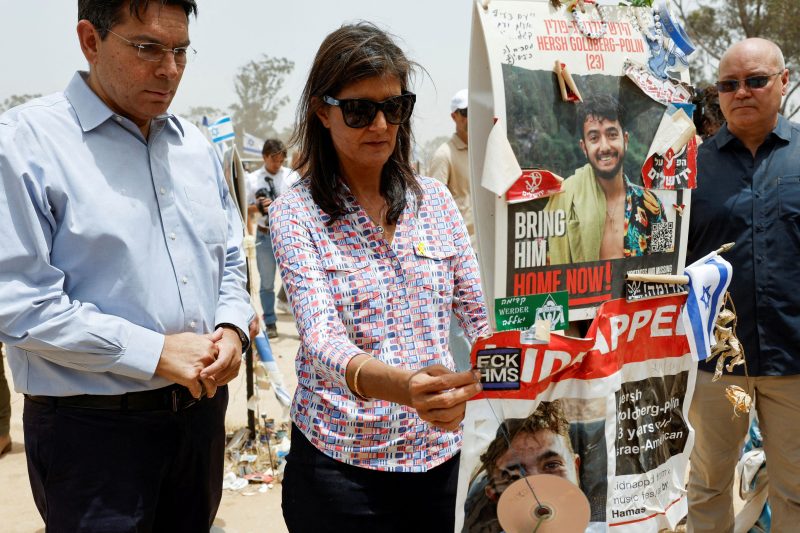In a recent controversial incident involving Nikki Haley, the former U.S. Ambassador to the United Nations, criticism erupted over a photo showing her writing Finish Them on an artillery shell during her visit to an Israeli artillery center. The act, captured by a keen-eyed photographer, quickly sparked debate and raised questions about the appropriateness of such actions by a prominent political figure on the global stage.
The image of Haley wielding a marker on an artillery shell, with the words Finish Them clearly visible, drew varied reactions from different quarters. Some supporters lauded the gesture as a bold stance against terrorism and a demonstration of solidarity with Israel in its ongoing conflict with militant groups. They viewed it as a symbol of unwavering support for Israel’s right to defend itself against external threats.
On the other hand, critics condemned Haley’s actions as promoting aggression and militarism, exacerbating the already tense situation in the region. They argued that a diplomat of her caliber should have exercised more restraint and diplomacy, rather than engaging in provocative displays that could escalate tensions and incite violence further.
The context of the inscription, Finish Them, on an artillery shell carries significant weight, given the history of conflicts and violence in the Middle East. The phrase evokes images of warfare, conquest, and the annihilation of enemies, reflecting a mindset that prioritizes victory at all costs. In a region plagued by long-standing political disputes and armed conflicts, such messaging can be seen as highly inflammatory and counterproductive to efforts aimed at achieving peace and stability.
Importantly, Haley’s actions also highlight the fine line that public figures, especially diplomats and politicians, must tread when communicating messages through symbolic gestures or visual representations. While symbolism can be a powerful tool to convey intentions and values, it can also be easily misinterpreted or misused, leading to unintended consequences and backlash.
In the realm of global diplomacy, words and actions carry immense significance, influencing perceptions and shaping international relations. As a former representative of the United States at the United Nations, Haley’s behavior in this instance raises questions about the responsibilities and ethical considerations that come with holding such a high-profile position.
In conclusion, the incident involving Nikki Haley and the Finish Them inscription on an artillery shell underscores the complexities and challenges of diplomatic communication in a volatile geopolitical landscape. It serves as a reminder of the need for careful consideration and sensitivity when engaging in symbolic acts that have the potential to impact perceptions, fuel tensions, or undermine diplomatic efforts towards conflict resolution. As the world continues to grapple with multifaceted conflicts and crises, the role of diplomats and leaders in promoting dialogue, understanding, and peaceful solutions remains more crucial than ever.
